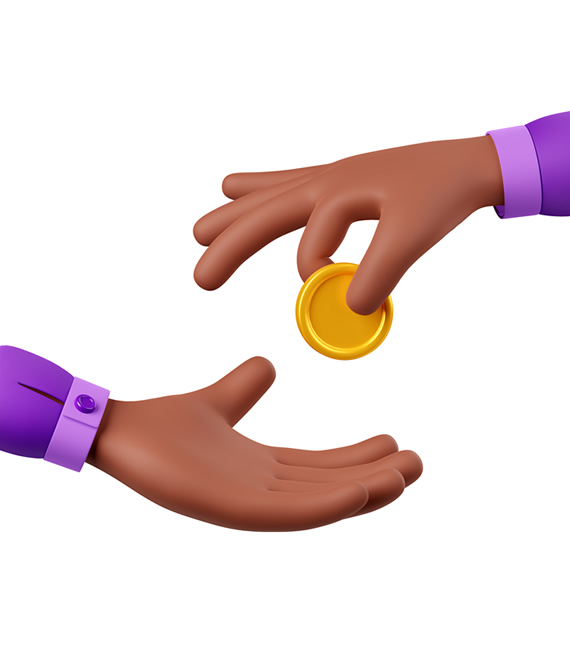
8 Important Money-Saving Tips For Students
We recommend helpful products in our articles. Read our full disclosure here. The content on this website is not intended to be a substitute for professional advice, diagnosis, or treatment.

Students are not made of money because if you are a student, you have to spend a lot to pay for studying.
In addition, there are typical expenses such as food, rentals, books, and even homework help from respectful services (frankly, quality and cheap essay writing services are simply irreplaceable for students who lack the time or skills to complete their tasks).
However, you cannot live without spending money.
At the same time, you may have dreams and goals which are hard to reach without additional funds.
In this article, we’re sharing our best money-saving tips for students who want to be smart with their money and save without sacrificing their quality of life.
8 Important Money-Saving Tips For Students
IMAGES VIA DEPOSITPHOTOS
1. Define your purpose
Saving money matters even if you do not have a particular goal or dream that costs a fortune.
It is very important to have some funds in your account.
However, having a pleasant goal can be a great additional motivator for saving money.
Think over your values and dreams, define the goal, and pre-plan the approximate time you require to collect the needed amount to reach that goal.
For example, if you want to buy a new laptop, you need to calculate its cost and find the store with the best price.
Then, plan your budget and get the presumed timeline on how long it would take to save the needed amount.
The main idea is to motivate yourself to save.
2. Track your expenses
You would not be able to save money effectively if you don’t track your spending.
Students make a mistake thinking they can remember all the transactions during the day, week, or month.
Even if you do not use cash and pay with a credit card, there might be expenses you could miss or forget.
By patiently writing down all of the transactions you make, you would get a realistic picture of how you spend your money.
We recommend using apps that help to track your budget, for example, Mint or Goodbudget. By installing one of those apps on your device, you could track your spending on the go.
It’s much easier to change your spending habits when you know exactly where your money goes!
3. Stick to a budget
It is vital for every student to make a budget and stick to it.
You have to develop a habit of finishing each month with careful counting of your expenses and planning your spending for the upcoming month.
The core idea of your monthly budget is that it could be subject to change.
Therefore, you can predict some of the mandatory payments, such as rent or food.
You need to be aware that some extra spending may appear eventually, for example, spontaneous shopping, trips, gifts, or health care.
Be accurate and update your budget following changes that occur.

4. Plan your purchases
If you have a goal to save money to afford valuable things or services, you need to divide your needs from “wants.” If you are starting uncontrolled spending, money goes away quickly.
Think about what is crucial to get regularly and what you can hold off for a while.
For example, food to cook meals is important and frequent visits to restaurants are not necessary.
You also can make a rule for yourself that each purchase that is more or equal to a particular amount must be made after deciding its necessity.
Simply speaking, it would help you to be a little cold-minded when it comes to shopping.
5. Cook at home
One of the easiest ways to reduce your daily and monthly spending is to avoid restaurants and meals to-go.
Instead, you can cook delicious and healthy dishes at home.
Moreover, it could result in a great tradition for your family and friends to cook for each other and gather regularly behind a big table to try homecooked food.
To arrange cooking at home, you would need to make lists for grocery shopping and be a strategist when it comes to purchases.
It may sound mundane, but you would be surprised by your results!
In addition, it would sufficiently help to stop purchasing coffee-to-go and stick to making coffee at home.
Such a habit could save you a lot of money, and it is an ecologically responsible choice.

6. Avoid pricey brands
When you choose a store to shop for clothes, try to avoid famous brands and new collections.
There are many perfect items in outlets that would fit you great.
When it comes to style, matching outfits matter much more than labels.
By developing your style, you would look gorgeous no matter what brand you are wearing.
Think about the idea that big clothes retailers have to make money each year to develop their businesses, which is why trends appear so frequently.
Stick to clothes that fit you and your body type, and do not run for trending items.
7. Look for discounts
Stores and supermarkets offer discounts very often.
If you check the goods with discounts, you would see they are the same and even better than some goods for the full price.
In addition, use coupons for everything you can.
Coupons can be found in magazines, newspapers, daily mail, etc.
Moreover, you need to know that many stores have special student discounts that are not advertised.
However, by asking an employee in the grocery store hall regarding students’ deals, you could get a lot of useful information.
8. Pay bills on time
Pay your bills and credit payments on time, don’t forget your appointments to hospitals, and avoid violating administrative laws.
All fees and payments move you away from your initial money-saving goal.
Be patient with your bills and be proactive with the schedules of charges.
If you had to pay more due to delayed terms, you would waste your funds for nothing.
Remember that each small amount counts when it comes to saving.
Saving Money As a Student: Final Thoughts
We hope that these tips were interesting to read!
By applying them to your daily finance operations, you will realize how easy it can be to achieve any goals you might have.
Believe in your ability to save and start doing it right now.
Money management is a very useful skill to learn, and it can serve you throughout your whole life.
Like these tips?
Scroll down for more!
"We love to research problems, examine studies, analyze solutions, and share with you ideas that make life healthier. You can learn about us and our editorial standards here. Have suggestions or feedback to share? Send us a message!."













Leave a Comment